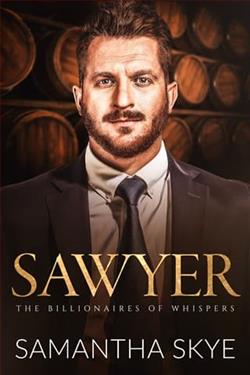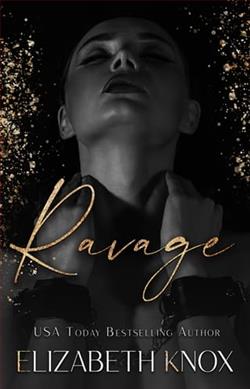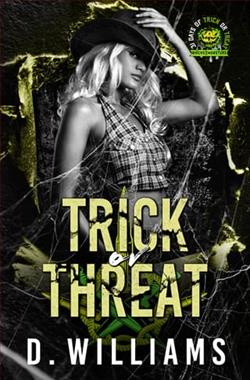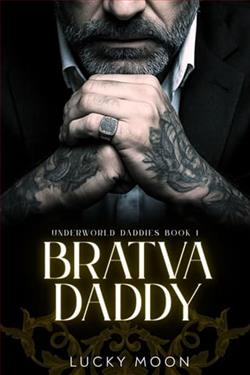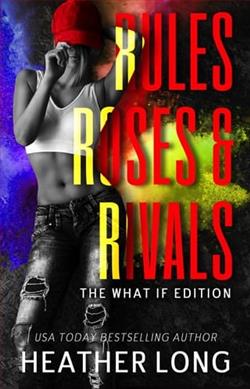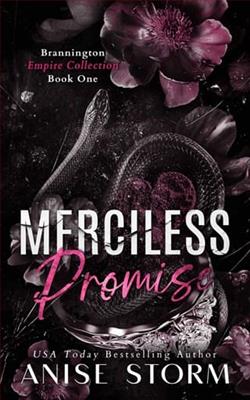Page 19 of Embracing the Earl (The St. Clairs 3)
“Go on,” she encouraged, curious as to what research he’d done.
“Being a member of the upper class, I purchase all of my books from a bookseller,” he began. “My library is extensive because of my broad taste in literature and nonfiction. All of my copies are bound in leather, though I know some books are bound in cloth.”
“Aunt Evie carried a handful of books bound by leather for her most prosperous customers. Most of the rest of the inventory was in cloth or a cheaper material.”
“Ah, so you’re aware of that.”
Caroline sniffed. “I told you I am familiar with all aspects of the book business.”
“Did Boston have circulating libraries?”
“I knew of one. I was interested and would have investigated it further had I not had the opportunity to return to England. Please, tell me what you have found.”
“Though I don’t patronize them, circulating libraries have grown in popularity in London in recent years. Several are owned and operated by booksellers. They charge a guinea for establishing an initial subscription and then a small fee for each book lent to a patron. Minerva Library is one we will visit today, one of the largest of these circulating libraries. It’s important for you to see it in operation if you want to become one of its competitors.”
“So you feel I’ll need to not only sell books but lend them, as well.”
“Yes.”
“What are you looking for in setting up your operation?” he asked.
Caroline reminded him again of how location was very important to her. She also described wanting a large expanse of plate glass windows in order to display her books and possibly other wares.
“Are you still interested in combining your store with a tearoom?”
“Yes, of course.”
“The reason I ask is that I have learned some of these circulating libraries have become like a club for women of the upper and middle classes.”
“Really? How so?”
“Gentleman have their clubs in which to gather. Women do not. Though circulating libraries require that a subscription be purchased in order to rent books, a lady can visit these libraries whenever she wishes. No fee is due beyond the subscription. Because of that, women are flocking to them, not for merely books, but for the social aspect. Some offer games and raffles. Some even stock merchandise for sale. Others have reading areas, as you did in Boston, where women are afforded an opportunity to read anything they choose. Poetry. Biographies. Histories. Whatever is available.”
“That is terribly exciting. It gives me hope that I do have a place in the city and can help others.”
The carriage slowed and then came to a halt. Caroline looked out the window and murmured, “Temple of Muses,” as she stared up at the multi-storied building.
“The Temple of Muses is our first stop of many,” Lord Mayfield confirmed.
He opened the carriage door and leaped out. She stood and before the footman riding on the back was able to bring the stairs around, the earl had clasped her waist in his hands and swung her to the ground. Her mouth grew dry as his fingers lingered and then he released her.
“Shall we?” he asked, offering her his arm.
She took it—and entered a world of wonder.
The shop was light and airy, with a large front desk staffed with clerks who both sold and lent books. Areas affording seating were scattered throughout the bottom floor and several ladies sat engrossed in both reading and conversing about books. A secret thrill shot through Caroline. This was what she wanted to do with her life.
She stopped a clerk and peppered him with questions, learning that publishers had first been wary of circulating libraries, preferring to sell books rather than lend them out. Since the circulating libraries used a unique, marble patterned paper binding to distinguish library books from others, it was easy to see the difference in the stock. The marbled binding was cheaper, meaning the books didn’t hold up as well, and had to be ordered again from the publishing houses, allaying the fears of publishers. The clerk said these days more than half of a print run of a book was designated for circulating libraries, putting them on almost equal footing as those purchased.
Lord Mayfield took her to several other stops. She thoroughly enjoyed her visit to Minerva Press Circulating Library, simply for its scope and size. A handful of the libraries and stores they visited had close to five thousand titles. Minerva boasted of five times that amount. Minerva Press published both sentimental romance novels and Gothic horrors. Those genres had proven to be the most popular forms of literature, which Caroline learned from speaking to another clerk. She would definitely stock many copies of those kinds of books.
What impressed her most about Minerva Press was the colossal circular counter in the middle of the bookshop. She also noted the wide staircase that led upstairs to what the Minerva Press clerk termed lounging rooms, along with row after row of bookshelves. This bookstore also carried printed musical scores, which could also be lent to patrons, as well as magazines and graphic arts. And as Lord Mayfield had informed her, she saw a handful of bookstores carrying items for women, from parasols and reticules to gloves and fichus.
Everywhere she went, she saw scads of women. Only a tenth of the customers were men. Already, ideas danced through her head, knowing her bookstore—and now circulating library—would cater almost exclusively to women. Because of that, she made a note of the most popular books carried. Without a doubt, copies of the six volumes of Maria Edgeworth’sTales of Fashionable Lifedominated sales, based upon what her eyes noted and the numerous conversations with store clerks revealed.
By the time they left what Lord Mayfield said was their last stop, Caroline was elated—and exhausted.
The earl gave her a rueful smile. “With so many places to visit, I quite forgot about the time. I’m famished and regret I did not stop and feed you during this whirlwind tour.”








